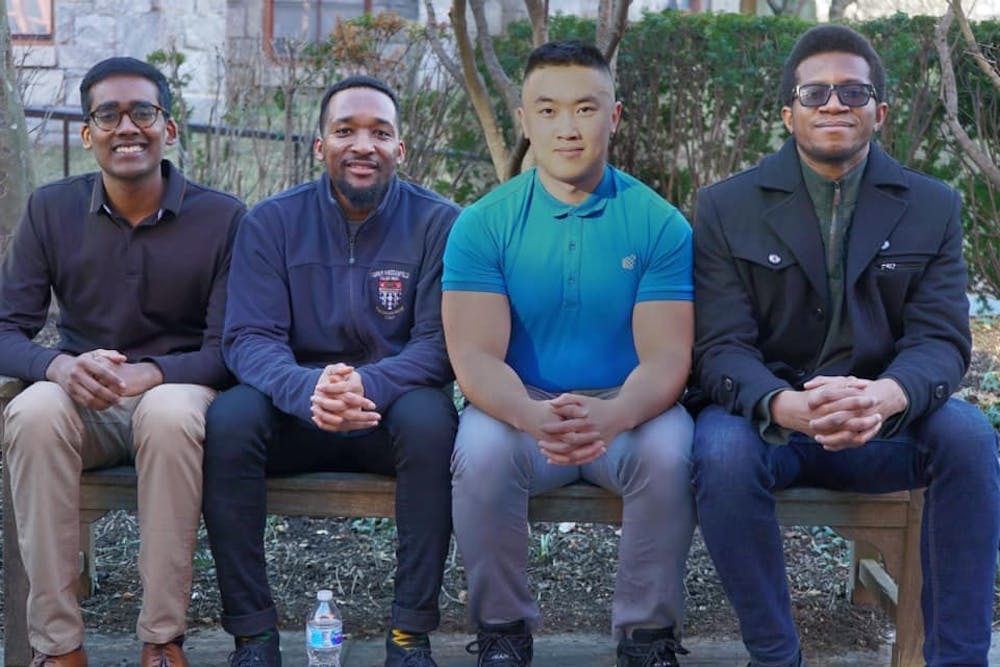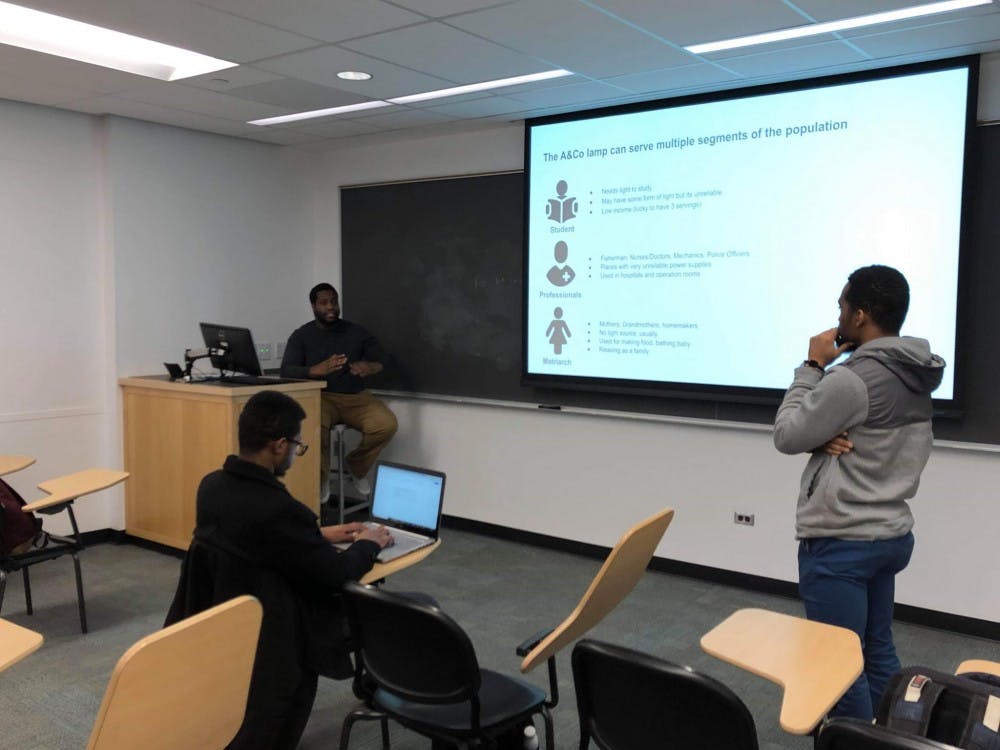
(From left to right) Neeraj Chandreseker, Anthony Ayebiahwe, Steven Chang, Japhet Debrah are part of a team working to create a LED lamp and flooding alert system for Ghana (Photo from Anthony Ayebiahwe).
Anthony Ayebiahwe used to look for light by sitting outside the homes of neighbors with generators when the electricity went out in his hometown of Elmina, Ghana. Now, the Weitzman School of Design master's student is creating an affordable LED lamp and flooding alert system to help the local residents deal with the challenges he faced in his youth.
In January, Ayebiahwe founded the nonprofit A&Co. to develop technologies that help solve some of the problems he faced in Ghana. He is currently working on several products, including a flooding alert system and a solar panel system, that aim to provide affordable, versatile solutions to challenges such as flooding and limited electricity. One of Ayebiahwe's projects is a multipurpose, rechargeable, affordable LED lamp.
“I want it to be something that is beneficial to a lot of people," Ayebiahwe said of the lamp. "I want it to be something that is a go-to for most people in rural areas in Ghana.”
Ayebiahwe traveled to the United States after meeting 2012 Wharton graduate Phillip Levine, who was volunteering in his hometown and helped him study for the SAT and work on the college application process. Ayebiahwe completed his undergraduate studies at Berea College in Kentucky before attending PennDesign, where he is pursing a master's degree in urban spatial analytics.
Engineering junior Japhet Debrah, who is also working on developing the lamp, said his Ghanaian background and passion for startups encouraged him to get involved in the project.
"Because I am from Ghana, I am always looking for something to do to help Ghana,” Debrah said.
While the lamp is still in the prototype process, Ayebiahwe said his team plans to finish the product by May and send it to partner schools and clinics in Ghana to receive their feedback.

Leroy Sibanda, Anthony Ayebiahwe, and Japhet Debrah brainstorm during one of their meetings (Photo from Anthony Ayebiahwe).
Ayebiahwe is also working to develop a flooding alert system to deal with the devastating floods in Ghana. He said extreme flooding is a cross-continental issue, and he hopes the alert system will have an “impact in Ghana and the broader African continent."
Leonard Shaw, a second-year applied geoscience master's student who has also been working on the flooding alert system, said he has developed a program to collect real-time data on the weather and rainfall levels of 60 locations in Ghana. Shaw said he hopes to expand the program to model and calculate the probability of flooding in a given area, which would allow the team to warn people about potential floods before they begin.
Ayebiahwe added that while the program is currently a web page, he hopes to develop a mobile app that can send real-time notifications about nearby floods. He also hopes to eventually partner with Ghana's telecommunication system to create a text-message flood alert system.
Beyond the lamp and the flood alert system, Ayebiahwe said he is in the process of developing an easily accessible solar panel system that would be provided and manufactured in Ghana.
"If I look at where I came from in Ghana and how far my country has come to right now, and see that something that we are going to build is going to have impact on more than 24 million people, it just feels humbling,” he said.
Steven Chang, a master's student in Urban Spatial Analytics who is working on manufacturing the LED lamp, said he has appreciated the chance to work on the project.
“I think it is great to learn a different perspective and to know that there is something I can do as a collaborator with the group to kind of help out in this situation,” Chang said. “It is no longer that I say that I am aware of all of these issues, I’m actually participating in an initiative that is actively trying to solve these problems."
The Daily Pennsylvanian is an independent, student-run newspaper. Please consider making a donation to support the coverage that shapes the University. Your generosity ensures a future of strong journalism at Penn.
Donate



